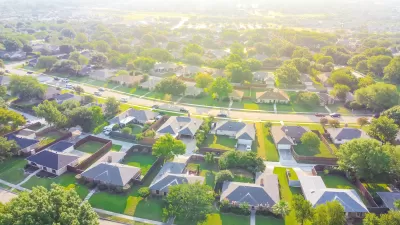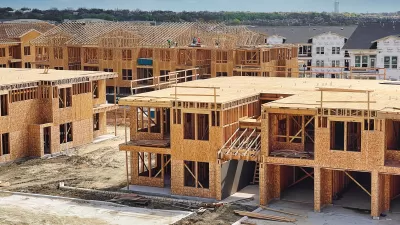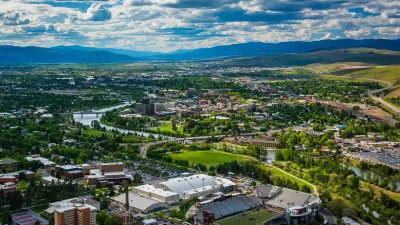The ‘Yes In My Backyard’ grants are designed to help cities identify the most effective avenues for increasing density and spurring more housing construction in historically reluctant neighborhoods.

An $85 million federal grant program included in the omnibus funding package passed late last year aims to counter NIMBY opposition to new housing development and help cities pass zoning reforms that encourage increased housing production, higher density, and transit-oriented development, writes Kery Murakami in Route Fifty.
According to the omnibus, HUD will award grants to cities that demonstrate ‘a commitment to overcoming local barriers to facilitate the increase in affordable housing production and preservation.’ Cities with ‘an acute demand’ for housing affordable to households below the median income in their area will also get preference for the grants.
A prior proposal by President Biden called for federal grants for cities that eliminate ‘exclusionary’ zoning laws, but it was not included in the bipartisan infrastructure law. “However, Biden in his budget request last March called for the creation of a $10 billion state and local grant program to encourage and support zoning changes that would allow more kinds of housing to go up in what are often largely white and wealthier neighborhoods.”
The federal initiative is partly modeled on a Washington state program that awards grants to cities “to examine how their zoning policies were restricting the supply of housing, as a shortage of homes contributed to sharply rising real estate prices.” The program yielded changes to zoning codes in Tacoma, Walla Walla, and other cities.
FULL STORY: The New Federal Grants to Help Cities Ditch 'NIMBY'-backed Zoning

Planetizen Federal Action Tracker
A weekly monitor of how Trump’s orders and actions are impacting planners and planning in America.

Restaurant Patios Were a Pandemic Win — Why Were They so Hard to Keep?
Social distancing requirements and changes in travel patterns prompted cities to pilot new uses for street and sidewalk space. Then it got complicated.

Map: Where Senate Republicans Want to Sell Your Public Lands
For public land advocates, the Senate Republicans’ proposal to sell millions of acres of public land in the West is “the biggest fight of their careers.”

Maui's Vacation Rental Debate Turns Ugly
Verbal attacks, misinformation campaigns and fistfights plague a high-stakes debate to convert thousands of vacation rentals into long-term housing.

San Francisco Suspends Traffic Calming Amidst Record Deaths
Citing “a challenging fiscal landscape,” the city will cease the program on the heels of 42 traffic deaths, including 24 pedestrians.

California Homeless Arrests, Citations Spike After Ruling
An investigation reveals that anti-homeless actions increased up to 500% after Grants Pass v. Johnson — even in cities claiming no policy change.
Urban Design for Planners 1: Software Tools
This six-course series explores essential urban design concepts using open source software and equips planners with the tools they need to participate fully in the urban design process.
Planning for Universal Design
Learn the tools for implementing Universal Design in planning regulations.
Heyer Gruel & Associates PA
JM Goldson LLC
Custer County Colorado
City of Camden Redevelopment Agency
City of Astoria
Transportation Research & Education Center (TREC) at Portland State University
Camden Redevelopment Agency
City of Claremont
Municipality of Princeton (NJ)





























